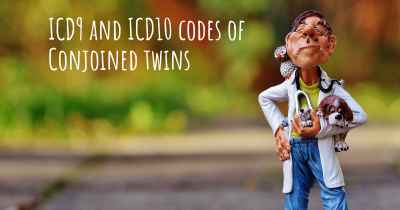Conjoined twins diet. Is there a diet which improves the quality of life of people with Conjoined twins?
See if there is a diet that can improve the quality of life of people with Conjoined twins, recommended and to avoid food when having Conjoined twins

Conjoined Twins Diet: Improving Quality of Life
Conjoined twins, also known as Siamese twins, are a rare occurrence where two individuals are physically connected at birth. This unique condition presents various challenges, including the need for a specialized diet to improve the quality of life for conjoined twins. While there is no specific diet designed exclusively for conjoined twins, certain considerations can be made to ensure their nutritional needs are met and their overall well-being is enhanced.
Individualized Nutritional Assessment
Each set of conjoined twins is unique, and their nutritional requirements may differ based on their specific condition and physical connection. Therefore, it is crucial to conduct an individualized nutritional assessment for conjoined twins. This assessment should involve a team of healthcare professionals, including dietitians, physicians, and surgeons, who can evaluate the twins' overall health, growth patterns, and any specific dietary needs.
Caloric and Nutrient Requirements
Conjoined twins often have higher caloric and nutrient requirements compared to single individuals due to the increased energy expenditure associated with their physical connection. The caloric and nutrient requirements should be determined based on factors such as age, weight, activity level, and any underlying medical conditions. A registered dietitian can help develop a personalized meal plan that meets these requirements.
Optimal Nutrition
Providing optimal nutrition is essential for conjoined twins to support their growth, development, and overall health. This includes a well-balanced diet that incorporates a variety of food groups, including fruits, vegetables, whole grains, lean proteins, and healthy fats. The diet should also be rich in essential vitamins and minerals, such as calcium, iron, and vitamin D, to promote bone health and prevent deficiencies.
Feeding Techniques
Feeding conjoined twins can be a complex process, depending on their physical connection. The feeding techniques employed should be tailored to their specific needs and abilities. This may involve using specialized equipment, such as modified bottles or feeding tubes, to ensure adequate nutrition and hydration. Regular monitoring of their feeding progress and weight gain is crucial to assess the effectiveness of the chosen feeding techniques.
Hydration and Fluid Intake
Proper hydration is vital for conjoined twins to maintain their overall health and prevent complications. The fluid intake should be carefully monitored, and the twins should be encouraged to drink an adequate amount of water throughout the day. In cases where oral intake is challenging, intravenous fluids may be necessary to ensure proper hydration.
Psychosocial Support
Living with conjoined twins can present unique psychosocial challenges, including body image concerns, social interactions, and emotional well-being. It is crucial to provide psychosocial support to conjoined twins and their families. This support can include counseling, support groups, and access to resources that address the emotional and social aspects of their lives.
Collaborative Care
Conjoined twins require a multidisciplinary approach to their care, involving various healthcare professionals working together. This collaborative care should include regular communication and coordination between dietitians, physicians, surgeons, nurses, and other specialists involved in their treatment. Regular follow-ups and evaluations are necessary to monitor their nutritional status and make any necessary adjustments to their diet.
Conclusion
While there is no specific diet exclusively designed for conjoined twins, an individualized approach to their nutritional needs can significantly improve their quality of life. By conducting a thorough nutritional assessment, determining appropriate caloric and nutrient requirements, providing optimal nutrition, employing suitable feeding techniques, ensuring proper hydration, offering psychosocial support, and implementing collaborative care, conjoined twins can thrive and lead fulfilling lives.








